Publications
Our publications gallery features published books by Simpson Center-affiliated scholars who received Simpson Center support for the research and writing of their work. If you have a Simpson Center-supported, published book that you would like to include in our gallery, please email schadmin@uw.edu.
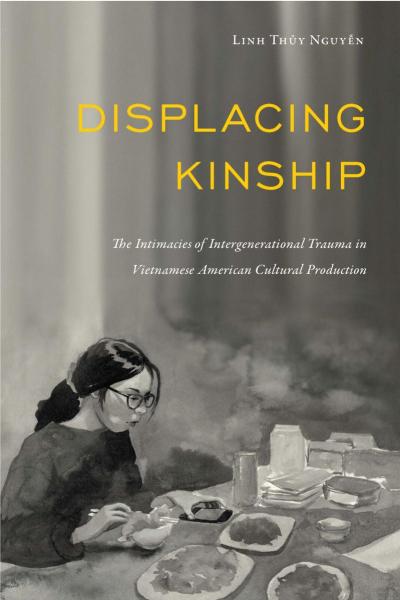
Displacing Kinship The Intimacies of Intergenerational Trauma in Vietnamese American Cultural Production
Displacing Kinship The Intimacies of Intergenerational Trauma in Vietnamese American Cultural Production
Nearly fifty years after the end of the war in Vietnam, American children of Vietnamese refugees continue to process the meanings of the war and its consequences through creative work. Displacing Kinship examines how Vietnamese American cultural productions register lived experiences of racism in their depictions of family life and marginalization. Second-generation texts illustrate how the children of refugees from Vietnam are haunted by trauma and a violent, ever-present, but...

Teika: The Life and Works of a Medieval Japanese Poet
Teika: The Life and Works of a Medieval Japanese Poet
Fujiwara no Teika (1162–1241) was born into an illustrious lineage of poets just as Japan’s ancien régime was ceding authority to a new political order dominated by military power. Overcoming personal and political setbacks, Teika and his allies championed a new style of poetry that managed to innovate conceptually and linguistically within the narrow confines of the waka tradition and the limits of its thirty-one syllable form. Backed by powerful...
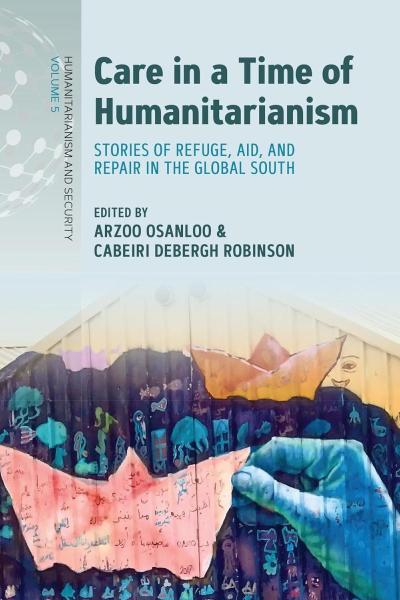
Care in a Time of Humanitarianism Stories of Refuge, Aid, and Repair in the Global South
Care in a Time of Humanitarianism Stories of Refuge, Aid, and Repair in the Global South
The vast majority of forced migrants & refugees seek shelter and respite in countries of the Global South, where humanitarian spaces and practices of care are no exceptions to international humanitarianism but rather part of a project founded on hybrid forms of care that include local and vernacular practices. Care in a Time of Humanitarianism presents complex histories of forced migration and humanitarianism in an accessible way. It applies a...

Crowded Out: The True Costs of Crowdfunding Healthcare
Crowded Out: The True Costs of Crowdfunding Healthcare
An eye-opening investigation into charitable crowdfunding for healthcare in the United States—and the consequences of allowing healthcare access to be decided by the digital crowd. Over the past decade, charitable crowdfunding has exploded in popularity across the globe. Sites such as GoFundMe, which now boasts a “global community of over 100 million” users, have transformed the ways we seek and offer help. When faced with crises—especially medical ones—Americans are turning...

Kinethic California: Dancing Funk and Disco Era Kinships
Kinethic California: Dancing Funk and Disco Era Kinships
Kinethic California: Dancing Funk and Disco Era Kinships documents the emergence of new forms of black social and vernacular dance invented by youth living in 1970s California, who helped build the foundations of contemporary hip hop/streetdance culture. Naomi Macalalad Bragin weaves interviews and ethnographies of first-generation (1960s-70s) dancers of strutting, boogaloo, robotting, popping, locking, waacking, and punking styles, as it advances a theory of dance as kinetic kinship formation through...
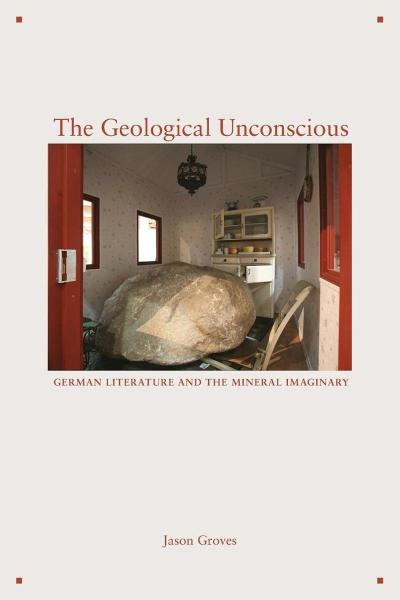
The Geological Unconscious: German Literature and the Mineral Imaginary
The Geological Unconscious: German Literature and the Mineral Imaginary
Already in the nineteenth century, German-language writers were contending with the challenge of imagining and accounting for a planet whose volatility bore little resemblance to the images of the Earth then in circulation. The Geological Unconscious (Fordham, 2020) traces the withdrawal of the lithosphere as a reliable setting, unobtrusive backdrop, and stable point of reference for literature written well before the current climate breakdown. Through a series of careful readings...

Unmaking the Bomb: Environmental Cleanup and the Politics of Impossibility
Unmaking the Bomb: Environmental Cleanup and the Politics of Impossibility
What does it mean to reckon with a contaminated world? In Unmaking the Bomb (UC, 2023), Shannon Cram considers the complex social politics of this question and the regulatory infrastructures designed to answer it. Blending history, ethnography, and memoir, she investigates remediation efforts at the Hanford Nuclear Reservation, a former weapons complex in Washington State. Home to the majority of the nation's high-level nuclear waste and its largest environmental cleanup...

Helen of Troy in Hollywood
Helen of Troy in Hollywood
Helen of Troy in Hollywood (Princeton, 2023) examines the figure of the mythic Helen in film and television, showing how storytellers from different Hollywood eras have used Helen to grapple with the problems and dynamics of gender and idealized femininity. Paying careful attention to how the image of Helen is embodied by the actors who have portrayed her, Ruby Blondell provides close readings of such works as Wolfgang Petersen’s Troy...
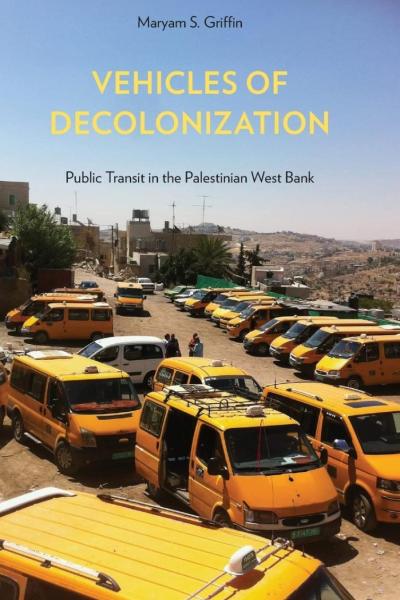
Vehicles of Decolonization: Public Transit in the Palestinian West Bank
Vehicles of Decolonization: Public Transit in the Palestinian West Bank
Examining the border-enclosure strategy Israel uses to impose Palestinian im/mobilization, Maryam Griffin considers the ways public transportation in the Palestinian West Bank is a constant site of social struggle. Her illuminating book, Vehicles of Decolonization (Temple, 2021), studies collective movement, resistance, and everyday life in the West Bank to show how Palestinians assert a kind of Indigenous self-determination over mobility that Israeli settler colonialism seeks to undermine. Read more on...
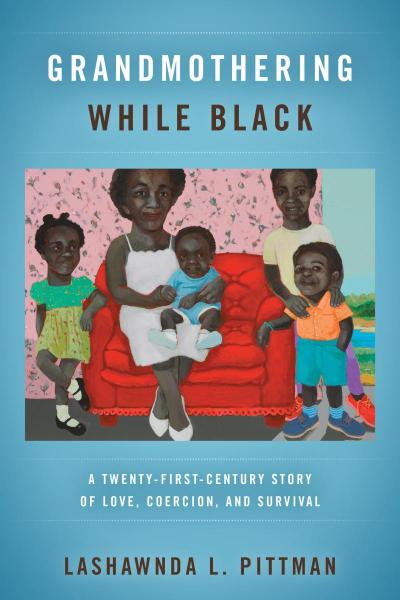
Grandmothering While Black: A Twenty-First-Century Story of Love, Coercion, and Survival
Grandmothering While Black: A Twenty-First-Century Story of Love, Coercion, and Survival
In Grandmothering While Black (UC, 2023), sociologist LaShawnDa L. Pittman explores the complex lives of Black grandmothers raising their grandchildren in skipped-generation households (consisting only of grandparents and grandchildren). She prioritizes the voices of Black grandmothers through in-depth interviews and ethnographic research at various sites—doctor's visits, welfare offices, school and day care center appointments, caseworker meetings, and more. Through careful examination, she explores the various forces that compel, constrain, and...

Envisioning African Intersex: Challenging Colonial and Racist Legacies in South African Medicine
Envisioning African Intersex: Challenging Colonial and Racist Legacies in South African Medicine
Since the 1600s, travelers, scientists, and doctors have claimed that “hermaphroditism” and intersex are disproportionately common among black South Africans. In Envisioning African Intersex (Duke, 2023), Amanda Lock Swarr debunks this claim by interrogating contemporary intersex medicine and demonstrating its indivisibility from colonial ideologies and scientific racism. Tracing the history of racialized research that underpins medical and scientific premises of gendered bodies, Swarr analyzes decolonial actions by intersex South Africans...
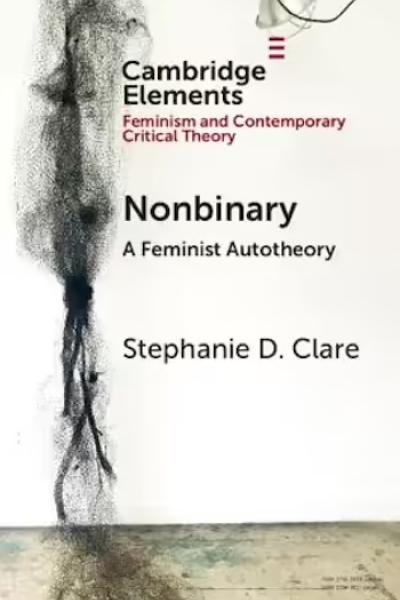
Nonbinary: A Feminist Autotheory
Nonbinary: A Feminist Autotheory
In Nonbinary: A Feminist Autotheory (Cambridge, 2023), Stephanie Clare explores the autotheoretical Element, written in the tense space between feminist and trans theory, and argues that movement between 'woman' and 'nonbinary' is possible, affectively and politically. In fact, a nonbinary structure of feeling has been central in the history of feminist thought, such as in Simone de Beauvoir's The Second Sex (1949). This structure of feeling is not antifeminist but...

Virtual Pedophilia: Sex Offender Profiling and U.S. Security Culture
Virtual Pedophilia: Sex Offender Profiling and U.S. Security Culture
In Virtual Pedophilia (Duke, 2020), Gillian Harkins traces how by the end of the twentieth century the pedophile as a social outcast evolved into its contemporary appearance as a virtually normal white male. The pedophile's alleged racial and gender normativity was treated as an exception to dominant racialized modes of criminal or diagnostic profiling. The pedophile was instead profiled as a virtual figure, a potential threat made visible only when...

Stayed On Freedom: The Long History of Black Power through One Family’s Journey
Stayed On Freedom: The Long History of Black Power through One Family’s Journey
The Black Power movement, often associated with its iconic spokesmen, derived much of its energy from the work of people whose stories have never been told. In Stayed On Freedom (Basic, 2023), Dan Berger brings into focus two unheralded Black Power activists who dedicated their lives to the fight for freedom. Zoharah Simmons and Michael Simmons fell in love while organizing tenants and workers in the South. Their commitment to...
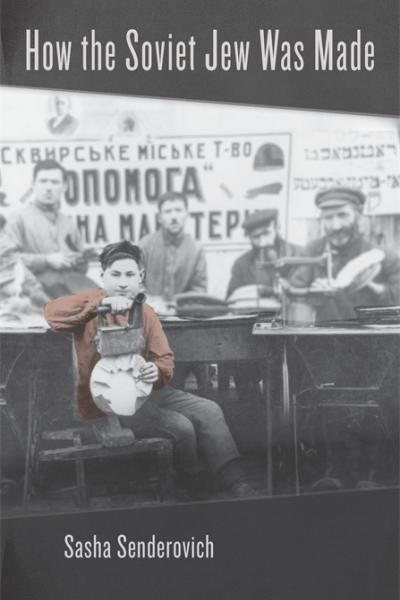
How the Soviet Jew Was Made
How the Soviet Jew Was Made
In How the Soviet Jew Was Made (Harvard, 2022), Sasha Senderovich offers a close reading of post-revolutionary Russian and Yiddish literature and film that recast the Soviet Jew as a novel cultural figure: not just a minority but an ambivalent character navigating between the Jewish past and Bolshevik modernity. After the revolution of 1917, Jews who had previously lived in the Russian Empire's Pale of Settlement quickly exited the shtetls...
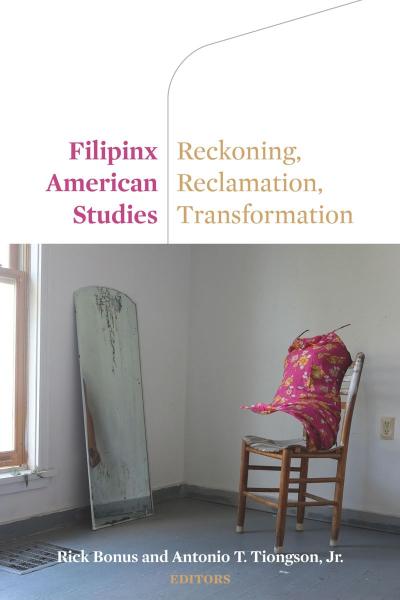
Filipinx American Studies: Reckoning, Reclamation, Transformation
Filipinx American Studies: Reckoning, Reclamation, Transformation
In Filipinx American Studies: Reckoning, Reclamation, Transformation (Fordham, 2022), Rick Bonus spotlights the unique suitability and situatedness of Filipinx American studies both as a site for reckoning with the work of historicizing US empire in all of its entanglements, as well as a location for reclaiming and theorizing the interlocking histories and contemporary trajectories of global capitalism, racism, sexism, and heteronormativity. It encompasses an interrogation of the foundational status of...
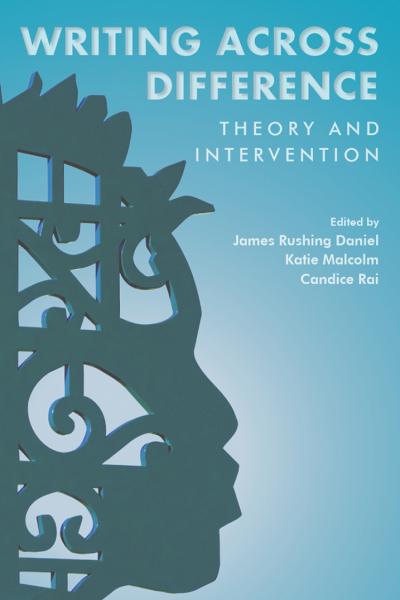
Writing across Difference: Theory and Intervention
Writing across Difference: Theory and Intervention
As the nation becomes increasingly divided by economic inequality, racial injustice, xenophobic violence, and authoritarian governance, scholars in writing studies have strived to develop responsive theories and practices to engage students, teachers, administrators, and citizens in the crisis of division and to begin the complicated work of radically transforming our inequitable institutions and society. Writing across Difference (Colorado, 2022) is one of the first collections to gather scholars from across...
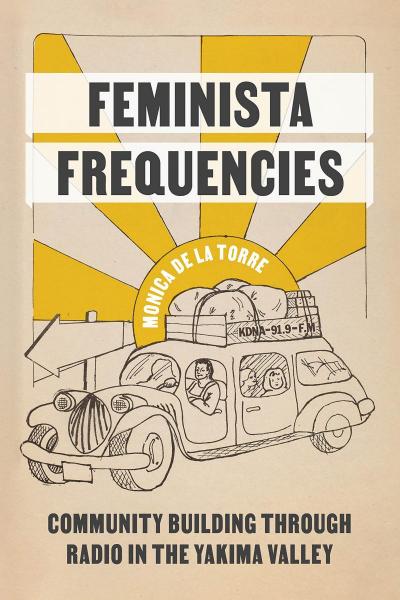
Feminista Frequencies: Community Building through Radio in the Yakima Valley
Feminista Frequencies: Community Building through Radio in the Yakima Valley
In Feminista Frequencies (University of Washington, 2022), Monica De La Torre unearths the remarkable history of one of the United States’ first full-time Spanish-language community radio stations, Radio KDNA, which began broadcasting in the Yakima Valley in 1979. Extensive interviews reveal the work of Chicana and Chicano producers, on-air announcers, station managers, technical directors, and listeners who contributed to the station’s success. Monica De La Torre weaves these oral histories...

Resurrection: Comics in Post-Soviet Russia
Resurrection: Comics in Post-Soviet Russia
Resurrection: Comics in Post-Soviet Russia (Ohio, 2022), traces the “kopecks to rubles” journey of Russian comics at the turn of the century. As the follow-up to José Alaniz’s groundbreaking Komiks: Comic Art in Russia (Mississippi, 2010), Resurrection authoritatively and exhaustively details the Russian comic landscape of the last three decades: beginning after the 1991 fall of the Soviet Union and encompassing the fourth Putin administration, the COVID-19 crisis, and beyond...
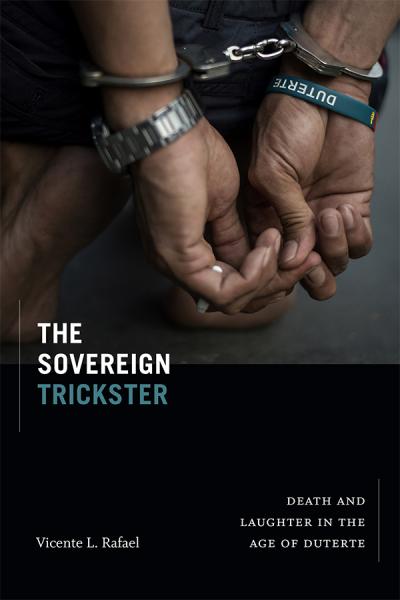
The Sovereign Trickster: Death and Laughter in the Age of Duterte
The Sovereign Trickster: Death and Laughter in the Age of Duterte
In The Sovereign Trickster (Duke, 2022), Vicente L. Rafael offers a prismatic view of the age of Rodrigo Duterte in the contemporary Philippines. Framing Duterte as a trickster figure who boasts, jokes, terrorizes, plays the victim, and instills terror, Rafael weaves together topics ranging from the drug war, policing, and extrajudicial killings to neoliberal citizenship, intimacy, and photojournalism. He is less concerned with defining Duterte as a fascist, populist, warlord...
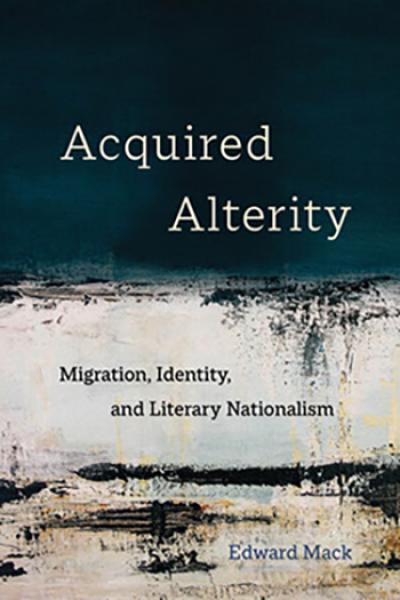
Acquired Alterity: Migration, Identity, and Literary Nationalism
Acquired Alterity: Migration, Identity, and Literary Nationalism
This is the first book-length study in English of the Japanese-language literary activities of early Japanese migrants to Brazil. It provides a detailed history of Japanese-language bookstores, serialized newspaper fiction, original creative works, and critical apparatuses that existed in Brazil prior to World War II. This case study of the reading and writing of one diasporic population challenges the dominant mode of literary study, in which texts are often explicitly...
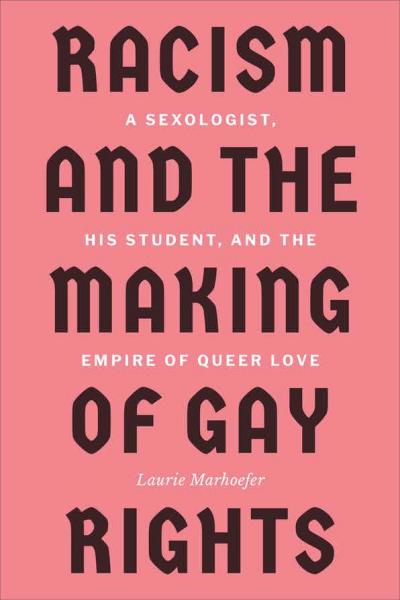
Racism and the Making of Gay Rights: A Sexologist, His Student, and the Empire of Queer Love
Racism and the Making of Gay Rights: A Sexologist, His Student, and the Empire of Queer Love
Following Hirschfeld and Li in their travels through the American, Dutch, and British empires, from Manila to Tel Aviv to having tea with Langston Hughes in New York City, and then into exile in Hitler’s Europe, Laurie Marhoefer provides a vivid portrait of queer lives in the 1930s and of the turbulent, often-forgotten first chapter of gay rights.

Underflows: Queer Trans Ecologies and River Justice
Underflows: Queer Trans Ecologies and River Justice
At the intersection of river sciences, queer and trans theory, and environmental justice, Underflows explores river cultures and politics at five sites of water conflict and restoration in California, Oregon, and Washington.
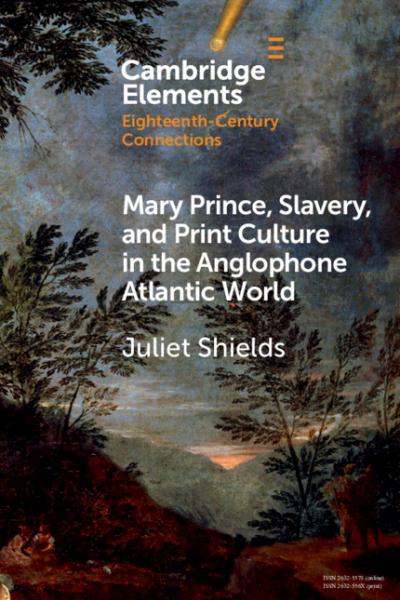
Mary Prince, Slavery, and Print Culture in the Anglophone Atlantic World
Mary Prince, Slavery, and Print Culture in the Anglophone Atlantic World
In Mary Prince, Slavery, and Print Culture in the Anglophone Atlantic World (Cambridge, 2021), Juliet Shields examines a network of writers that coalesced around the publication of The History of Mary Prince (1831), which recounts Prince's experiences as an enslaved person in the West Indies and the events that brought her to seek assistance from the Anti-Slavery Society in London. It focuses on the three writers who produced the text...
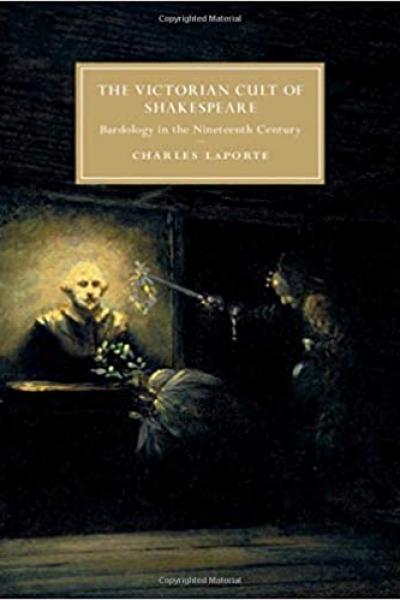
The Victorian Cult of Shakespeare: Bardology in the Nineteenth-Century
The Victorian Cult of Shakespeare: Bardology in the Nineteenth-Century
In the Victorian era, William Shakespeare's work was often celebrated as a sacred text: a sort of secular English Bible. Even today, Shakespeare remains a uniquely important literary figure. Yet Victorian criticism took on religious dimensions that now seem outlandish in retrospect. Ministers wrote sermons based upon Shakespearean texts and delivered them from pulpits in Christian churches. Some scholars crafted devotional volumes to compare his texts directly with the Bible's...

Black Age: Oceanic Lifespans and the Time of Black Life
Black Age: Oceanic Lifespans and the Time of Black Life
Although more than fifty years apart, the murders of Emmett Till and Trayvon Martin share a commonality: Black children are not seen as children. Time and time again, excuses for police brutality and aggression—particularly against Black children— concern the victim “appearing” as a threat. But why and how is the perceived “appearance” of Black persons so completely separated from common perceptions of age and time? Black Age: Oceanic Lifespans and...

Experimental Beijing: Gender and Globalization in Chinese Contemporary Art
Experimental Beijing: Gender and Globalization in Chinese Contemporary Art
During the lead-up to the 2008 Beijing Olympics, the censorious attitude that characterized China's post-1989 official response to contemporary art gave way to a new market-driven, culture industry valuation of art. Experimental artists who once struggled against state regulation of artistic expression found themselves being courted to advance China's international image. In Experimental Beijing (Duke, 2018), Sasha Su-Ling Welland examines the interlocking power dynamics in this transformational moment and rapid...

The Tragic Tale of Claire Ferchaud and the Great War
The Tragic Tale of Claire Ferchaud and the Great War
In The Tragic Tale of Claire Ferchaud and the Great War (University of California, 2005), Raymond Jonas tells the moving and improbable story of Claire Ferchaud, a young French shepherdess who had visions of Jesus and gained national fame as a modern-day Joan of Arc at the height of World War I. Claire experienced her first vision after a childhood trauma in which her mother locked her in a closet...
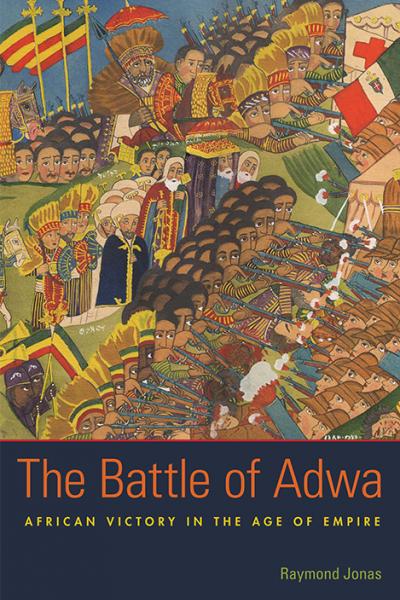
The Battle of Adwa: African Victory in the Age of Empire
The Battle of Adwa: African Victory in the Age of Empire
In March 1896 a well-disciplined and massive Ethiopian army did the unthinkable—it routed an invading Italian force and brought Italy’s war of conquest in Africa to an end. In an age of relentless European expansion, Ethiopia had successfully defended its independence and cast doubt upon an unshakable certainty of the age—that sooner or later all Africans would fall under the rule of Europeans. This event opened a breach that would...
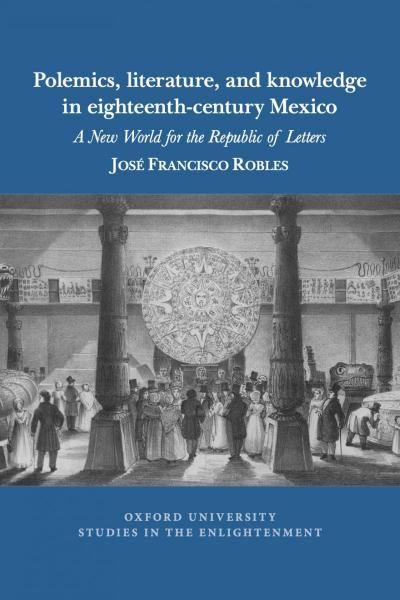
Polemics, Literature, and Knowledge in Eighteenth-Century Mexico: A New World for the Republic of Letters
Polemics, Literature, and Knowledge in Eighteenth-Century Mexico: A New World for the Republic of Letters
Polemics, Literature, and Knowledge in Eighteenth-Century Mexico (Oxford, 2021) is the first study to comprehensively analyze the configuration of the idea of the Republic of Letters in an eighteenth-century Latin American country. Taking a multisided approach to Mexican culture of the era, this book’s analysis of literary texts engages with an exploration of such concepts as the Republic of Letters and the archive, as well as their connections to transatlantic...
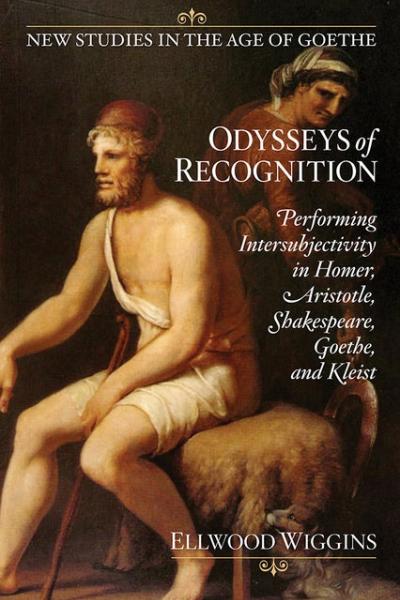
Odysseys of Recognition: Performing Intersubjectivity in Homer, Aristotle, Shakespeare, Goethe, and Kleist
Odysseys of Recognition: Performing Intersubjectivity in Homer, Aristotle, Shakespeare, Goethe, and Kleist
Literary recognition is a technical term for a climactic plot device. Odysseys of Recognition (Rutgers, 2019) claims that interpersonal recognition is constituted by performance, and brings performance theory into dialogue with poetics, politics, and philosophy. By observing Odysseus figures from Homer to Kleist, Ellwood Wiggins offers an alternative to conventional intellectual histories that situate the invention of the interior self in modernity. Through strategic readings of Aristotle, this elegantly written...
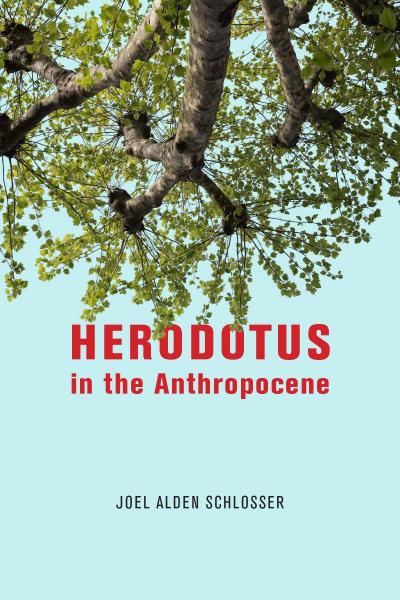
Herodotus in the Anthropocene
Herodotus in the Anthropocene
We are living in the age of the Anthropocene, in which human activities are recognized for effecting potentially catastrophic environmental change. In this book, Joel Alden Schlosser argues that our current state of affairs calls for a creative political response, and he finds inspiration in an unexpected source: the ancient writings of the Greek historian Herodotus. Focusing on the Histories, written in the fifth century BCE, Schlosser identifies a cluster...
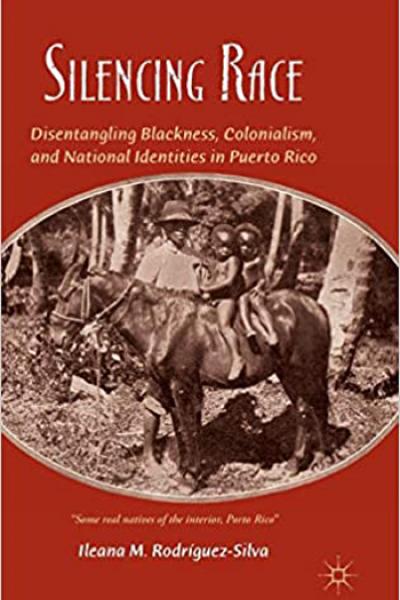
Silencing Race: Disentangling Blackness, Colonialism, and National Identities in Puerto Rico
Silencing Race: Disentangling Blackness, Colonialism, and National Identities in Puerto Rico
Silencing Race (Palgrave MacMillan, 2012) provides a historical analysis of the construction of silences surrounding issues of racial inequality, violence, and discrimination in Puerto Rico. Examining the ongoing racialization of Puerto Rican workers, it explores the 'class-making' of race. Winner of Frank Bonilla Best Book Award 2012-2014. Read more on the publisher's website.

The Afterlife of Empire
The Afterlife of Empire
The Afterlife of Empire (California, 2012) is an award-winning investigation on how decolonization transformed British society in the 1950s and 1960s. Although usually charted through its diplomatic details, the collapse of the British empire was also a deeply personal process that altered everyday life, restructuring routines, individual relationships, and social interactions. The book traces a set of diverse yet interrelated and richly compelling stories: West Indian migrants repatriated for mental...

Scottish Women's Writing in the Long Nineteenth Century: The Romance of Everyday Life
Scottish Women's Writing in the Long Nineteenth Century: The Romance of Everyday Life
Walter Scott's tales of chivalry and adventure inaugurated a masculinized Scottish romance tradition that celebrated a sublime and heroic version of Scotland. Nineteenth-century Scotswomen responded to Scott's influence by establishing a counter-tradition of unromantic or even anti-romantic representations of Scotland. Their novels challenged the long-standing claim that Scotland lacked any equivalent to the English realist novel. In turning from the past to the present and from the sublimity of Scott's...
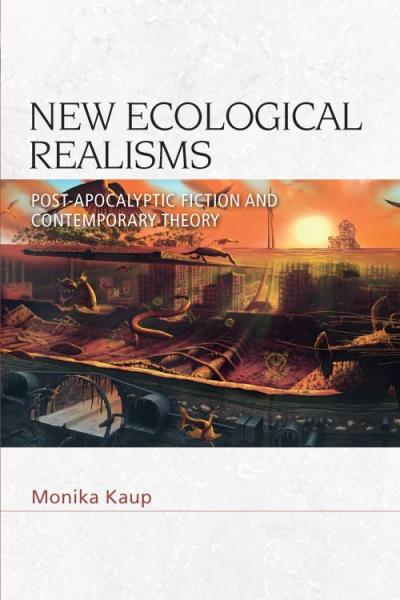
New Ecological Realisms: Post-Apocalyptic Fiction and Contemporary Theory
New Ecological Realisms: Post-Apocalyptic Fiction and Contemporary Theory
What is the singular reality of humanistic objects of study? By pairing post-apocalyptic novels by Margaret Atwood, José Saramago, Octavia Butler and Cormac McCarthy with new realist theories, Monika Kaup shows that, just as new realist theory can illuminate post-apocalyptic literature, post-apocalyptic literature also embeds new theories of the real. In New Ecological Realisms (Edinburgh, 2021) , Kaup showcases a context-based concept of the real, arguing that new realisms of...
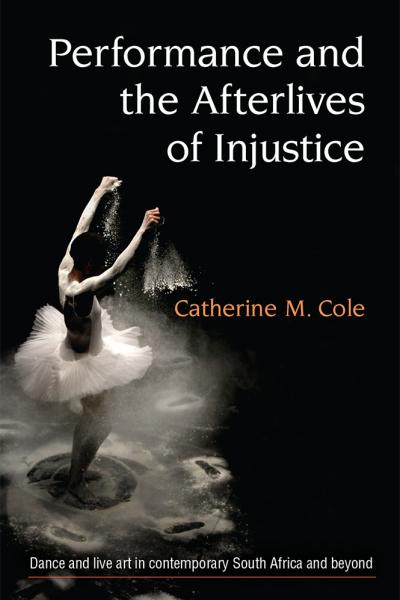
Performance and the Afterlives of Injustice
Performance and the Afterlives of Injustice
In the aftermath of state-perpetrated injustice, a façade of peace can suddenly give way, and in South Africa and the Democratic Republic of Congo, post-apartheid and postcolonial framings of change have exceeded their limits. Performance and the Afterlives of Injustice (Michigan, 2020) reveals how the voices and visions of artists can help us see what otherwise evades perception. Embodied performance in South Africa has particular potency because apartheid was so...

Green Wars: Conservation and Decolonization in the Maya Forest
Green Wars: Conservation and Decolonization in the Maya Forest
Global conservation efforts are celebrated for saving Guatemala’s Maya Forest. This book reveals that the process of protecting lands has been one of racialized dispossession for the Indigenous peoples who live there. Through careful ethnography and archival research, Megan Ybarra shows how conservation efforts have turned Q’eqchi’ Mayas into immigrants on their own land, and how this is part of a larger national effort to make Indigenous peoples into neoliberal...
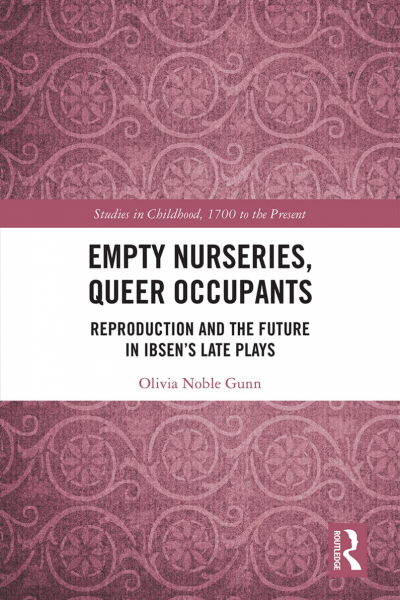
Empty Nurseries, Queer Occupants: Reproduction and the Future in Ibsen's Late Plays
Empty Nurseries, Queer Occupants: Reproduction and the Future in Ibsen's Late Plays
Who is the proper occupant of the nursery? The obvious answer is the child, and not an archive, a seductive troll-princess, or poor fosterlings. Nevertheless, characters in Hedda Gabler, The Master Builder, and Little Eyolf intend to host these improper occupants in their children’s rooms. In Empty Nurseries, Queer Occupants (Routledge, 2020), Olivia Noble Gunn calls these dramas ‘the empty nursery plays’ because they all describe rooms intended for offspring...

France and the Cult of the Sacred Heart: An Epic Tale for Modern Times
France and the Cult of the Sacred Heart: An Epic Tale for Modern Times
In a richly layered and beautifully illustrated narrative, Raymond Jonas tells the fascinating and surprisingly little-known story of the Sacré-Coeur, or Sacred Heart. The highest point in Paris and a celebrated tourist destination, the white-domed basilica of Sacré-Coeur on Montmartre is a key monument both to French Catholicism and to French national identity. Jonas masterfully reconstructs the history of the devotion responsible for the basilica, beginning with the apparition of...
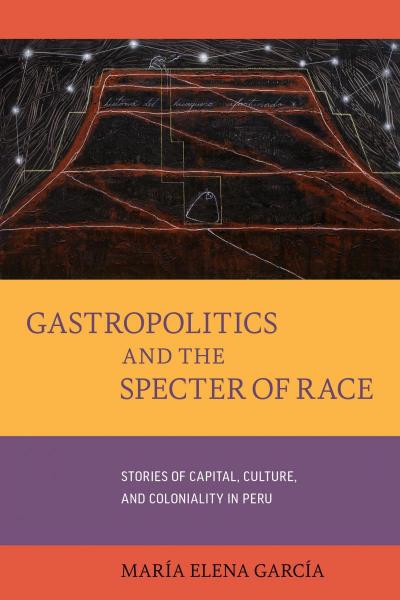
Gastropolitics and the Specter of Race: Stories of Capital, Culture, and Coloniality in Peru
Gastropolitics and the Specter of Race: Stories of Capital, Culture, and Coloniality in Peru
In recent years, Peru has transformed from a war-torn country to a global high-end culinary destination. Connecting chefs, state agencies, global capital, and Indigenous producers, this “gastronomic revolution” makes powerful claims: food unites Peruvians, dissolves racial antagonisms, and fuels development. Gastropolitics and the Specter of Race (California, 2021) critically evaluates these claims and tracks the emergence of Peruvian gastropolitics, a biopolitical and aesthetic set of practices that reinscribe dominant racial...

Citizens of Scandal: Journalism, Secrecy, and the Politics of Reckoning in Mexico
Citizens of Scandal: Journalism, Secrecy, and the Politics of Reckoning in Mexico
In Citizens of Scandal (Duke, 2020), Vanessa Freije explores the causes and consequences of political scandals in Mexico from the 1960s through the 1980s. Tracing the process by which Mexico City reporters denounced official wrongdoing, she shows that by the 1980s political scandals were a common feature of the national media diet. News stories of state embezzlement, torture, police violence, and electoral fraud provided collective opportunities to voice dissent and...
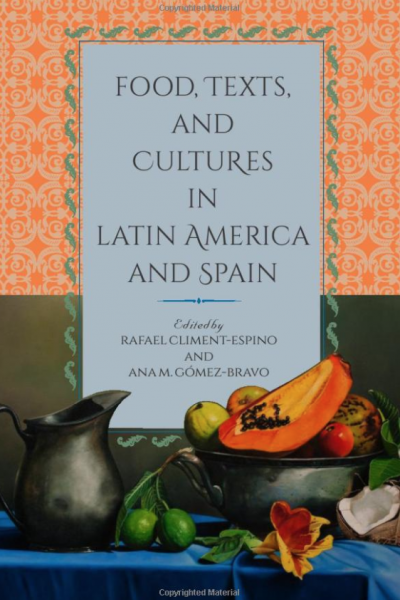
Food, Texts, and Cultures in Latin America and Spain
Food, Texts, and Cultures in Latin America and Spain
The fourteen essays in Food, Texts, and Cultures in Latin America and Spain (Vanderbilt, 2020) showcase the eye-opening potential of a food lens within colonial studies, ethnic and racial studies, gender and sexuality studies, and studies of power dynamics, nationalisms and nation building, theories of embodiment, and identity. In short, Food, Texts, and Cultures in Latin America and Spain grapples with an emerging field in need of a foundational text...

Urbanism without Guarantees: The Everyday Life of a Gentrifying West Side Neighborhood
Urbanism without Guarantees: The Everyday Life of a Gentrifying West Side Neighborhood
Vigilante action. Renegades. Human intrigue and the future at stake in New York City. In Urbanism without Guarantees (Minnesota, 2020), Christian M. Anderson offers a new perspective on urban dynamics and urban structural inequality based on an intimate ethnography of on-the-ground gentrification. The book is centered on ethnographic work undertaken on a single street in Clinton/Hell’s Kitchen in New York City—once a site of disinvestment, but now rapidly gentrifying. Anderson...

Forgiveness Work: Mercy, Law, and Victims' Rights in Iran
Forgiveness Work: Mercy, Law, and Victims' Rights in Iran
Iran’s criminal courts are notorious for meting out severe sentences—according to Amnesty International, the country has the world’s highest rate of capital punishment per capita. Less known to outside observers, however, is the Iranian criminal code’s recognition of forgiveness, where victims of violent crimes, or the families of murder victims, can request the state to forgo punishing the criminal. Forgiveness Work (Princeton, 2020) shows that in the Iranian justice system...
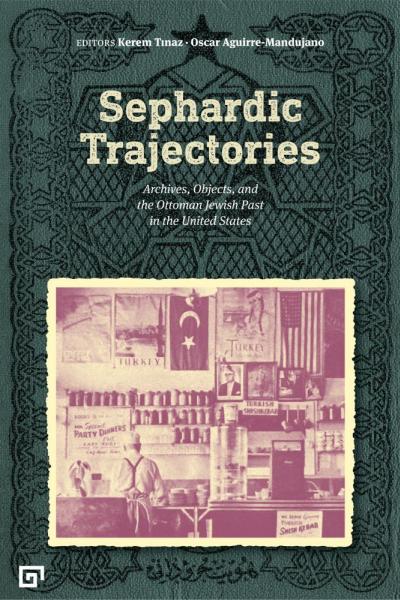
Sephardic Trajectories: Archives, Objects, and the Ottoman Jewish Past in the United States
Sephardic Trajectories: Archives, Objects, and the Ottoman Jewish Past in the United States
Sephardic Trajectories (Koç , 2021) brings together scholars of Ottoman history and Jewish studies to discuss how family heirlooms, papers, and memorabilia help us conceptualize the complex process of migration from the Ottoman Empire to the United States. To consider the shared significance of family archives in both the United States and in Ottoman lands, the volume takes as starting point the formation of the Sephardic Studies Digital Collection at...
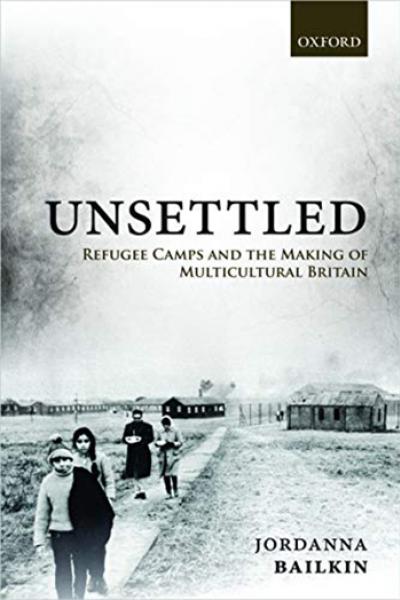
Unsettled: Refugee Camps and the Making of Multicultural Britain
Unsettled: Refugee Camps and the Making of Multicultural Britain
Today, no one really thinks of Britain as a land of camps. Camps seem to happen "elsewhere", from Greece, to Palestine, to the global South. Yet over the course of the twentieth century, dozens of British refugee camps housed hundreds of thousands of Belgians, Jews, Basques, Poles, Hungarians, Anglo-Egyptians, Ugandan Asians, and Vietnamese. Refugee camps in Britain were never only for refugees. Refugees shared a space with Britons who had...
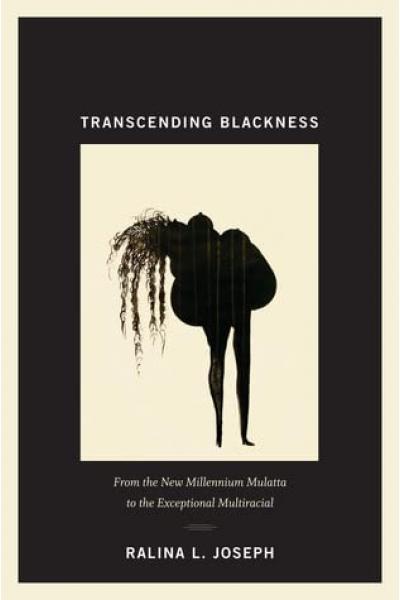
Transcending Blackness
Transcending Blackness
Representations of multiracial Americans, especially those with one black and one white parent, appear everywhere in contemporary culture, from reality shows to presidential politics. Some depict multiracial individuals as mired in painful confusion; others equate them with progress, as the embodiment of a postracial utopia. In Transcending Blackness (Duke, 2012), Ralina L. Joseph critiques both depictions as being rooted in—and still defined by—the racist notion that blackness is a deficit...
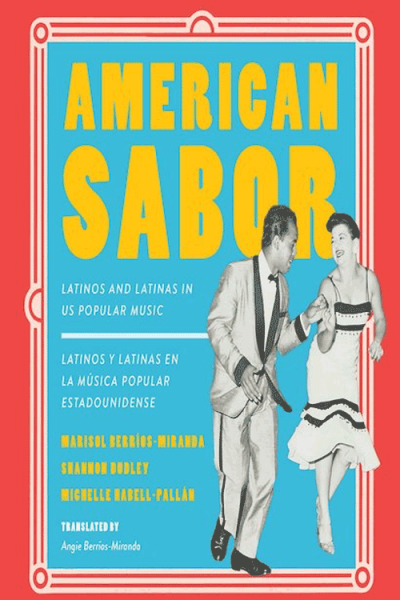
American Sabor: Latinos and Latinas in US Popular Music
American Sabor: Latinos and Latinas in US Popular Music
The collaboration that led to the publication of American Sabor (Washington, 2017) has extensive Simpson Center connections, beginning with a funding award in 2011 that supported the writing and publication of American Sabor, as well as a traveling museum exhibit by the same name. Former Simpson Center Associate Director Miriam Bartha consulted with the project leaders on bridging the worlds of academic scholarship, museum exhibitions, and community partners such as...
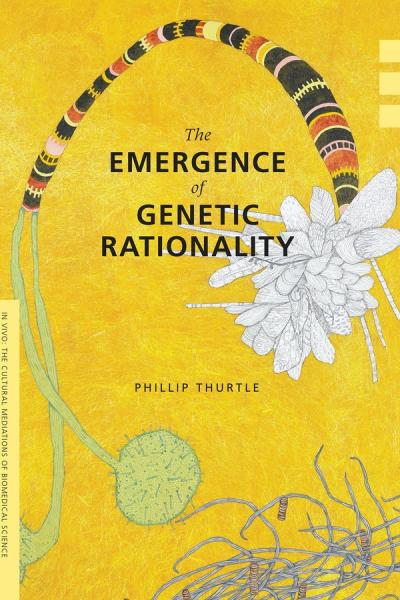
The Emergence of Genetic Rationality: Space, Time, and Information in American Biological Science, 1870-1920
The Emergence of Genetic Rationality: Space, Time, and Information in American Biological Science, 1870-1920
The emergence of genetic science has profoundly shaped how we think about biology. Indeed, it is difficult now to consider nearly any facet of human experience without first considering the gene. But this mode of understanding life is not, of course, transhistorical. Phillip Thurtle takes us back to the moment just before the emergence of genetic rationality at the turn of the twentieth century to explicate the technological, economic, cultural...

Pivotal Tuesdays: Four Elections That Shaped the Twentieth Century
Pivotal Tuesdays: Four Elections That Shaped the Twentieth Century
Serious and silly, unifying and polarizing, presidential elections have become events that Americans love and hate. Today's elections cost billions of dollars and consume the nation's attention for months, filling television airwaves and online media with endless advertising and political punditry, often heated, vitriolic, and petty. Yet presidential elections also provoke and inspire mass engagement of ordinary citizens in the political system. No matter how frustrated or disinterested voters might...
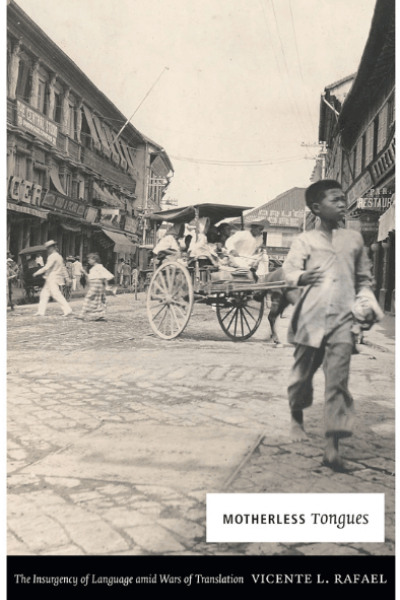
Motherless Tongues: The Insurgency of Language amid Wars of Translation
Motherless Tongues: The Insurgency of Language amid Wars of Translation
In Motherless Tongues (Duke, 2016), Vicente L. Rafael examines the vexed relationship between language and history gleaned from the workings of translation in the Philippines, the United States, and beyond. Moving across a range of colonial and postcolonial settings, he demonstrates translation's agency in the making and understanding of events. These include nationalist efforts to vernacularize politics, U.S. projects to weaponize languages in wartime, and autobiographical attempts by area studies...
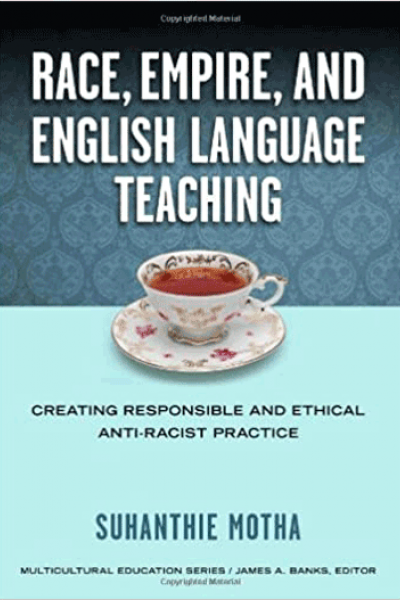
Race, Empire, and English Language Teaching: Creating Responsible and Ethical Anti-Racist Practice
Race, Empire, and English Language Teaching: Creating Responsible and Ethical Anti-Racist Practice
This timely and critical look at the teaching of English shows how language is used to create hierarchies of cultural privilege in public schools across the United States. Drawing on the work of four ESL teachers who pursued anti-racist pedagogical practices during their first year of teaching, Suhanthie Motha provides a compelling account of how new teachers might gain agency for culturally responsive teaching in spite of school cultures that...
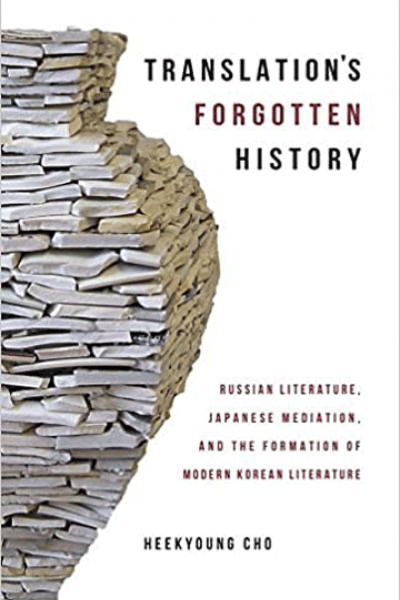
Translation’s Forgotten History: Russian Literature, Japanese Mediation, and the Formation of Modern Korean Literature
Translation’s Forgotten History: Russian Literature, Japanese Mediation, and the Formation of Modern Korean Literature
Translation’s Forgotten History (Harvard, 2016) investigates the meanings and functions that translation generated for modern national literatures during their formative period and reconsiders literature as part of a dynamic translational process of negotiating foreign values. By examining the triadic literary and cultural relations among Russia, Japan, and colonial Korea and revealing a shared sensibility and literary experience in East Asia (which referred to Russia as a significant other in the...
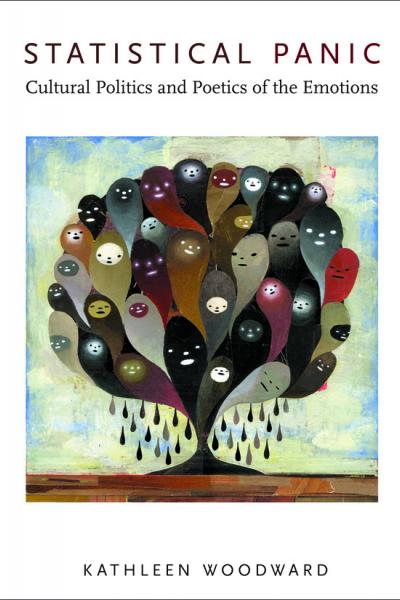
Statistical Panic: Cultural Politics and Poetics of the Emotions
Statistical Panic: Cultural Politics and Poetics of the Emotions
In this moving and thoughtful book, Kathleen Woodward explores the politics and poetics of the emotions, focusing on American culture since the 1960s. She argues that we are constrained in terms of gender, race, and age by our culture’s scripts for “emotional” behavior and that the accelerating impoverishment of interiority is a symptom of our increasingly media-saturated culture. She also shows how we can be empowered by stories that express...
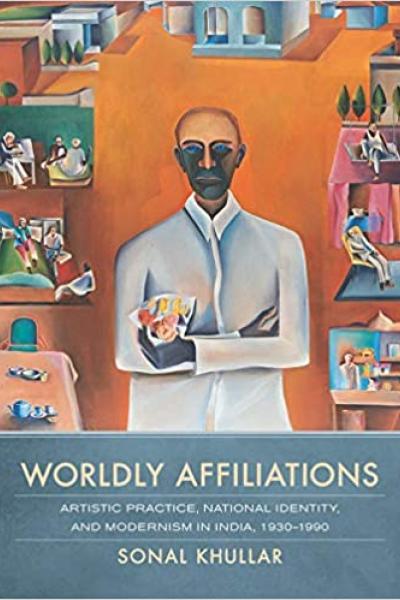
Worldly Affiliations: Artistic Practice, National Identity, and Modernism in India, 1930–1990
Worldly Affiliations: Artistic Practice, National Identity, and Modernism in India, 1930–1990
The purpose of art, the Paris-trained artist Amrita Sher-Gil wrote in 1936, is to "create the forms of the future” by “draw[ing] its inspiration from the present.” Through art, new worlds can be imagined into existence as artists cultivate forms of belonging and networks of association that oppose colonialist and nationalist norms. Drawing on Edward Said’s notion of “affiliation” as a critical and cultural imperative against empire and nation-state, Worldly...